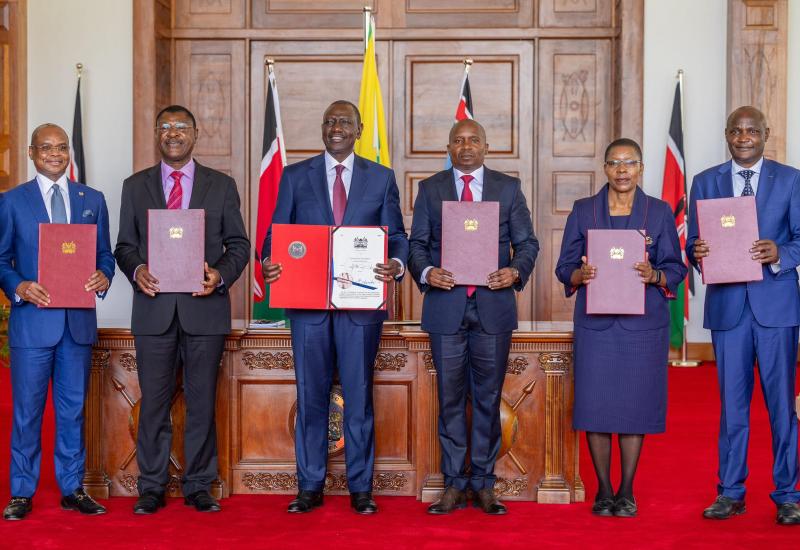Kenya’s government is pushing back against growing public unease following President William Ruto’s assent to eight new laws last week, amid confusion over sweeping land and governance changes.
Lands and Physical Planning Principal Secretary Nixon Korir and Aurelia Rono, the Principal Secretary for Parliamentary Affairs in the Office of the Prime Cabinet Secretary, issued separate statements on Thursday seeking to clarify the amendments that have triggered heated debate online and in political circles.
Clarifying Land Law Amendments
In a detailed statement, Mr Korir dismissed claims circulating on social media that the new laws had introduced land levies or converted freehold titles to leasehold.
“The information circulating on social media about the conversion of land regimes from freehold to leasehold and the purported introduction of levies is misleading and not factual,” he said.
Korir explained that the changes to the Land Act stemmed from a Private Member’s Bill sponsored by Ruiru MP Simon King’ara, not from the Leader of the Majority as some critics had alleged.
He said the new provision requires the Chief Land Registrar to register all public land allocated to state institutions by the National Land Commission (NLC), as well as land designated for public use in development plans — such as plots set aside for schools, hospitals or playgrounds.
“The amendments further require registration of public land and land earmarked for public amenities to be published in the Kenya Gazette,” Mr Korir said, adding that this would help prevent land grabbing and ensure transparency in public land allocation.
Wider Reform Agenda
Meanwhile, Ms Rono took out a full-page notice in The Standard newspaper to explain the broader purpose of the eight Bills, which she said were aimed at improving governance and government responsiveness in a fast-changing world.
“The recently enacted Bills seek to infuse much-needed reforms and enhance government efficiency, including the State’s capacity to respond to crimes and financial tools that have emerged courtesy of recent advances in technology,” she said.
She added that the legislative changes were also intended to address long-standing issues of fairness and accountability.
“The Bills also reinforce our collective commitment to address historical injustices, entrench equity and transparency, and accelerate national development and transformation,” she said.
Mounting Public Scrutiny
Despite the government’s assurances, the laws have continued to attract scrutiny from opposition figures, civil society groups and policy analysts, many of whom have called for greater public consultation before such major legislative changes are enacted.
While officials insist the amendments are part of a long-term reform agenda, critics warn that a lack of clarity risks fuelling mistrust in government institutions.
For now, the government’s message is one of reassurance — that the laws are not a backdoor for hidden levies or private land deals, but rather a step toward cleaner, more accountable governance.
Still, as the debate grows louder, it remains to be seen whether Kenyans will take them at their word.

